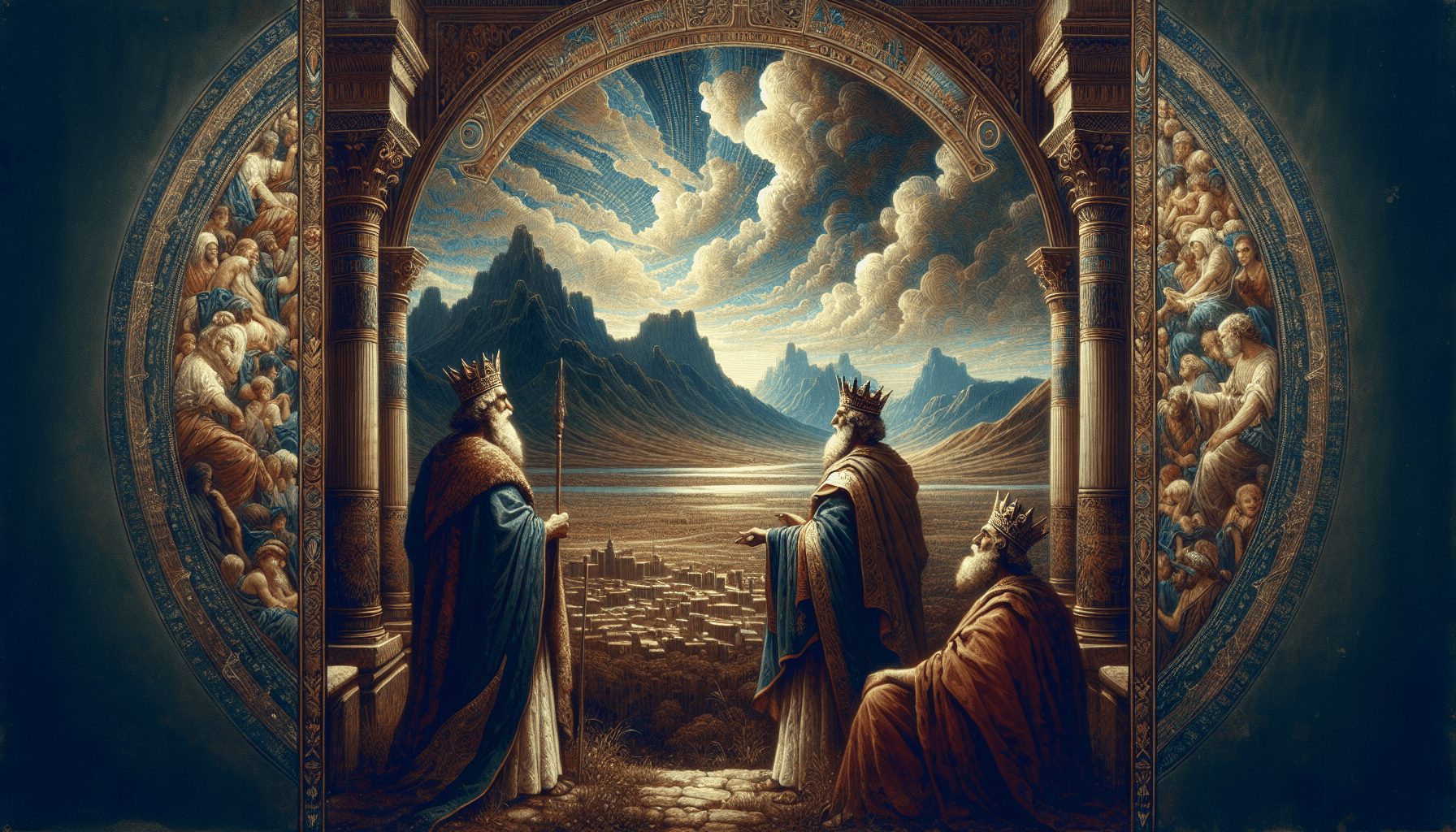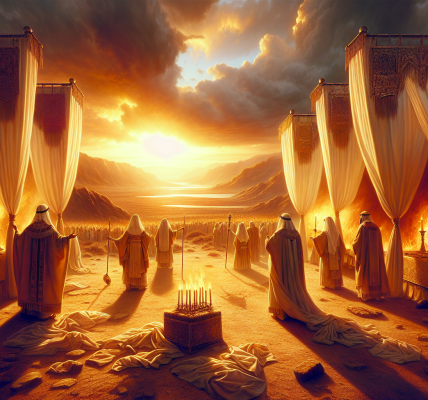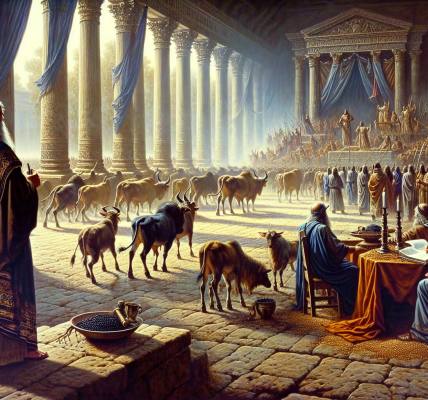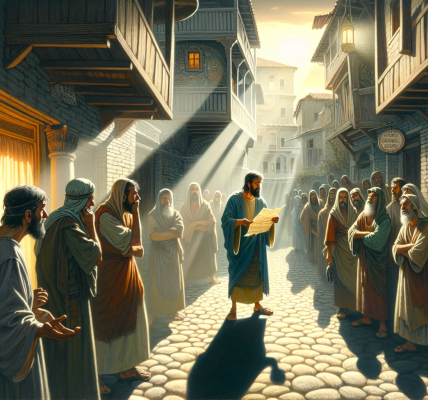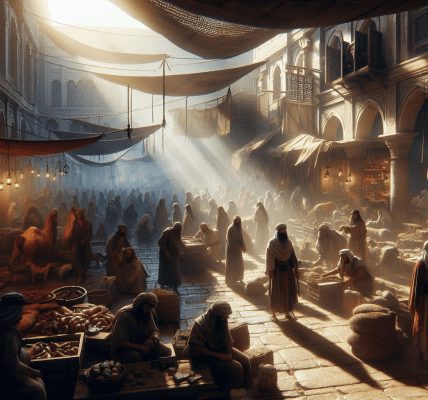**The Story of Melchizedek and the Eternal Priesthood**
In the ancient days, when the world was still young and the promises of God were whispered through the generations, there lived a man named Melchizedek. He was no ordinary man, for he was both a king and a priest, a mysterious figure who appeared suddenly in the pages of history, only to vanish just as quickly. His name meant “King of Righteousness,” and he ruled over Salem, a city that would later be known as Jerusalem. But Melchizedek was more than a king; he was a priest of the Most High God, a servant of the Almighty who stood apart from the lineage of Aaron and the Levitical priesthood.
The story of Melchizedek is told in the book of Genesis, where he meets Abraham, the father of faith. Abraham had just returned from a great battle, having rescued his nephew Lot from the clutches of enemy kings. As Abraham journeyed home, weary but victorious, Melchizedek came out to meet him. He brought with him bread and wine, symbols of sustenance and blessing, and he blessed Abraham in the name of the Most High God, Creator of heaven and earth. In response, Abraham gave Melchizedek a tenth of all the spoils of war, acknowledging his priesthood and his authority.
Melchizedek’s appearance was brief, but his legacy was eternal. He was a priest without beginning or end, a man whose lineage was not recorded, whose priesthood was not inherited but bestowed directly by God. He stood as a foreshadowing of the One who would come—a greater High Priest who would not be bound by the limitations of earthly lineage or the frailty of human sin.
Centuries later, the author of Hebrews would reflect on this mysterious figure, drawing parallels between Melchizedek and Jesus Christ. In Hebrews 5, the writer explains that every high priest is chosen from among men and appointed to represent them in matters related to God. He offers gifts and sacrifices for sins, dealing gently with those who are ignorant and going astray, since he himself is subject to weakness. This is why the high priest must offer sacrifices for his own sins as well as for the sins of the people.
But Jesus was different. He did not take the honor of being a high priest upon Himself; He was appointed by God, just as Aaron was. Yet Jesus was not of the tribe of Levi, nor was He a descendant of Aaron. He was of the tribe of Judah, a tribe from which no priest had ever come. But God declared, “You are a priest forever, in the order of Melchizedek.” This declaration set Jesus apart, for His priesthood was not based on earthly lineage but on the power of an indestructible life.
The writer of Hebrews goes on to explain that during the days of Jesus’ earthly life, He offered up prayers and petitions with fervent cries and tears to the One who could save Him from death. And He was heard because of His reverent submission. Though He was a Son, He learned obedience through what He suffered. And once made perfect, He became the source of eternal salvation for all who obey Him.
The priesthood of Jesus, like that of Melchizedek, is eternal. It is not bound by time or limited by human frailty. Jesus entered the Most Holy Place once for all, not by the blood of goats and calves, but by His own blood, having obtained eternal redemption. He is the mediator of a new covenant, so that those who are called may receive the promised eternal inheritance.
The story of Melchizedek serves as a reminder that God’s plans are greater than human understanding. In the shadowy figure of this ancient king-priest, we see a glimpse of the One who would come to fulfill all righteousness, to offer Himself as the perfect sacrifice, and to intercede for us before the throne of God. Jesus, our great High Priest, is the fulfillment of the promise, the One who bridges the gap between heaven and earth, and who invites us into the eternal priesthood of faith.
And so, the story of Melchizedek echoes through the ages, a testament to the unchanging nature of God’s promises and the eternal priesthood of Jesus Christ, who reigns forever in the order of Melchizedek.
